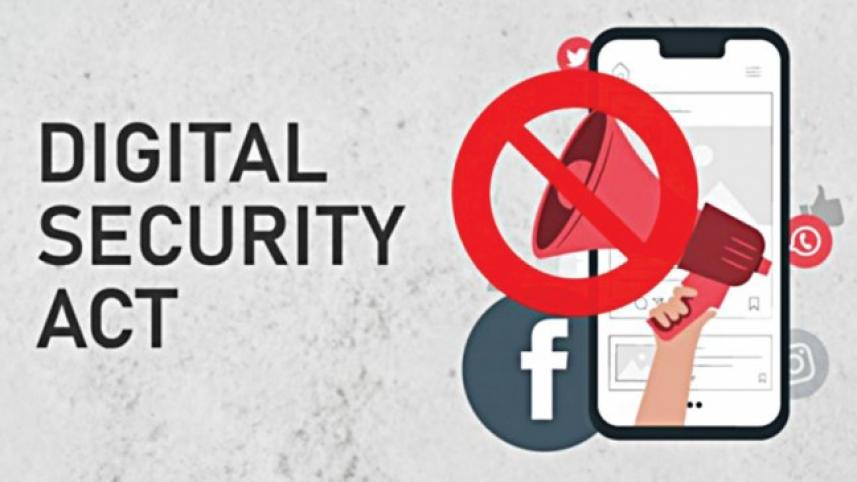Why are we stifling critical expressions?

We have said it before and we are saying it again: the Digital Security Act (DSA) is a repressive law, which curbs the constitutionally guaranteed right of citizens to freedom of expression. We expect the votaries of the draconian law to retort that no freedom is without the attendant obligation to exercise it without abridging the rights of others. To that, we say: there are existing laws to address any transgression in this regard, without applying a reprehensible instrument such as the DSA.
If one analyses the cases lodged in the last two years, the fear that it would be used as a shield to protect the government and the administration from criticism—particularly from the mainstream media—and stifle the opposition is borne out by the number of cases targeting journalists for mere criticism of the agencies or the elected or nominated public office holders, and the opposition politicians. So much has the law become the Sword of Damocles that the print and electronic media (even those not attached to the government apron string) choose to err on the side of caution.
No political party that claims to have the mandate of the people can afford to be so conceited as to consider itself and the functionaries under it above all criticism, unwilling to countenance critical comments and dissenting voice from the public and political opponents. What should one make of the fact that, reportedly, more than 1,500 people—mostly politicians and journalists—were sued under the DSA between the years 2018 and 2020, and a similar number of cases were filed between January 1, 2020 and September 15, 2021?
Having neutered the media thus, the other platforms of communication, i.e. the social media platforms, are now being targeted—another prediction that has, sadly, come true. According to data by ARTICLE 19, a UK-based human rights body that focuses on freedom of expression, 83 percent of the 225 DSA cases lodged between January and November this year were filed over social media posts and individuals' online expressions. Individuals affiliated with the ruling party filed 40 percent of these cases. Similarly, 40 percent of the cases were filed against people for allegedly criticising the prime minister, ministers, members of parliament, and affiliates of the ruling party.
These statistics are a sad commentary on the country's state of democracy, rights and freedom. The DSA has infused a sense of fear among the public and the media which is supposed to reflect public opinion. We have no issue with the intention of the government to secure the variegated communication media, but we regret to say that the draconian provisions have been motivated by the administration's unwillingness to face criticism, fed by a dangerous notion that public servants are above reproach. It is time to bin the unconstitutional provisions of the DSA.



 For all latest news, follow The Daily Star's Google News channel.
For all latest news, follow The Daily Star's Google News channel.
Comments